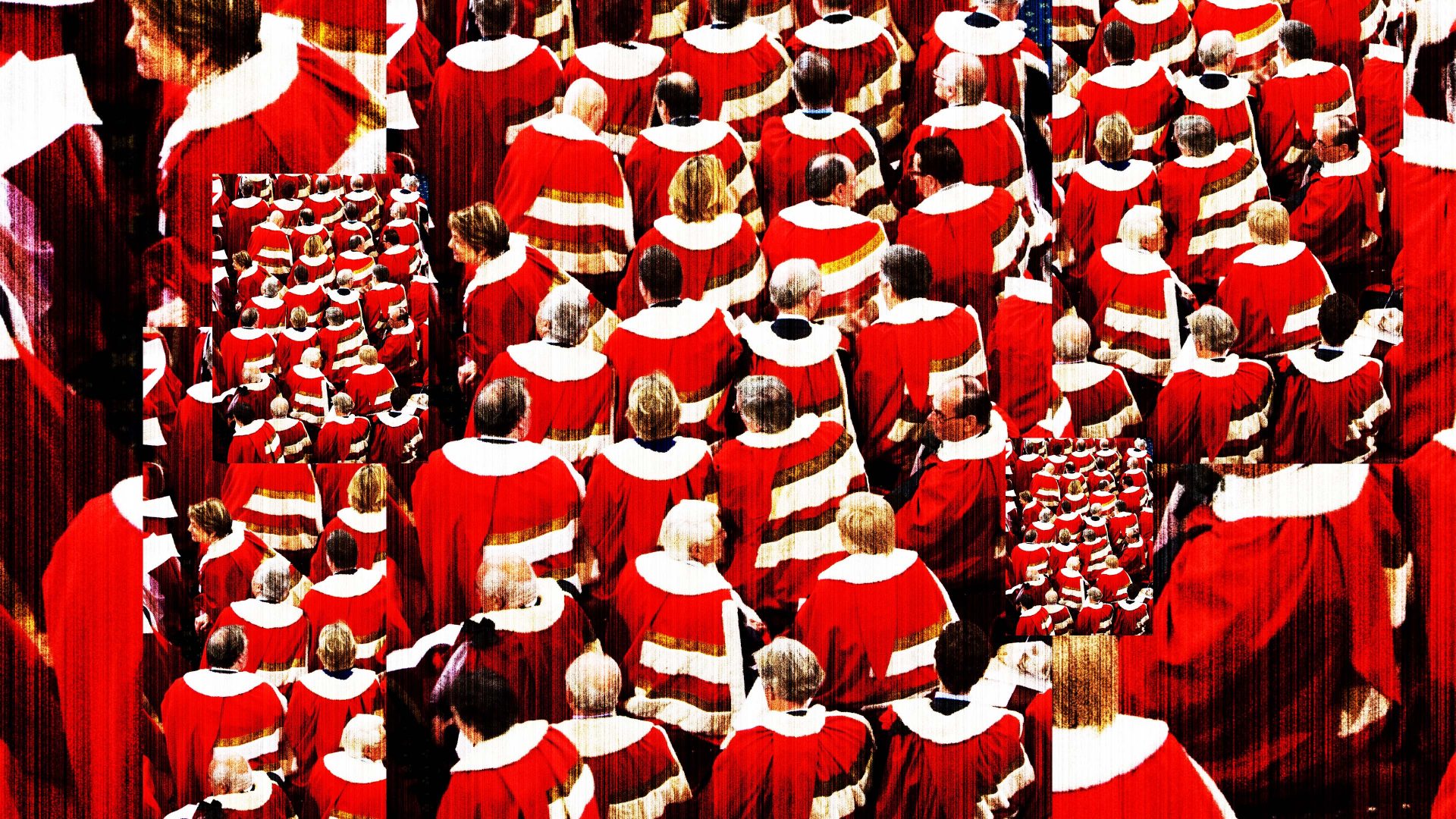Being promoted to one of the most important positions in UK government is generally a pretty informal affair: a tap on the shoulder from the prime minister and the new holder of that office heads off to address the awaiting staff in his or her new department. This, however, was far from the case with the latest foreign secretary. David Cameron had to don a red velvet robe edged with ermine and go through an antiquated ceremony that involved a pledge of allegiance to his “liege lord” before he could go jetting off to the war-torn Middle East.
This is not a formality reserved for prime ministers making a surprise return to government. If any prime minister decides that the only person equipped to fill a crucial role is someone who is not a sitting member of parliament, then the only way for that to happen is that the candidate must go through the rigmarole of becoming a peer of the realm.
The UK loves its traditions, and takes a peculiar national pride in the fact that it does pomp and circumstance rather well. But has the time come to query whether such quaint play-acting should have a role in the important business of government? If the UK is to truly aspire to being a modern democracy, should it not be grown-up enough to consign ancient rites to the history books, or at least separate them from the important business of government?
This is not only a question pertaining to the second chamber but to much of the process of government. Take the extraordinary palaver that surrounds the start of a new parliamentary session, a really important event in a government’s timetable. This is when it lays out what it wants to achieve in its following term in office. Except it is not the prime minister or any member of his government who announces the agenda it intends to pursue, but the monarch.
The farce of the King’s Speech this year was particularly grating, as a nominal head of state renowned for his strong views on climate change had to grit his teeth and announce that “my government” would be pursuing measures that almost certainly were anathema to him.
Whether or not one is in favour of the UK having a monarchy, this is surely not the role for which it is suited in the 21st century. The elaborate ceremony involved is expensive, hugely disruptive to central London and does not reflect the reality, which is that the monarchy only survives if it keeps out of politics.
The royal family undoubtedly provides a major draw for tourists: they still flock to see the Changing of the Guard at Buckingham Palace, and revel in the soap opera tales of tensions within the royal household. But perhaps it is time for a commission – maybe not a royal one – to examine whether and how the UK might separate the important business of government from the folderol of the monarchy.
The House of Lords, of which David Cameron is now a member, is not served well by the image that is conveyed by its fancily dressed officials and strange behaviours any more than it is by the suggestion that peerages are easily purchased by generous party donors. They detract from the hard work that is actually performed by parliament’s second chamber, particularly in scrutinising bills that have passed through the Commons with barely a look.
I have to declare an interest at this point, as a member of that second chamber. A dozen years ago, I put on the velvet cloak and went through the same ceremony that the now Lord Cameron has been through in order to become a working peer. It is a huge privilege to be appointed to the legislature and one to be taken very seriously. Many of my colleagues devote long hours and intense attention to trying to improve the welter of legislation that governments increasingly seem set on adding to the statute books.
But some do appear to have other motivations in accepting a peerage. Reform of the House of Lords has been discussed ad infinitum and the risk is that the most radical proposals would destroy the positive contributions made by the House while achieving nothing better.
Nevertheless, it is no longer necessary for a properly functioning second chamber to insist that, if Lord Speaker is on his feet, everyone else must be seated. So serious is this requirement that, as a new recruit, I was told that, should I be standing when Lord Speaker rose, then I should sit down wherever I was, “even if that means sitting on the knee of a bishop”.
This rule emanates from the time when anyone standing could equate to a threat of an imminent attack but, while debate in the Lords can become heated, physical violence does not occur, at least not in the chamber.
A modern democracy surely demands more modern ways of working. The time has come to completely separate the monarchy and the role-playing of their lordships from the serious business of government. David Cameron may be the best person available to be the UK’s foreign secretary, but he should not need to risk shrieks of “order, order” should he be standing when he should be sitting.




